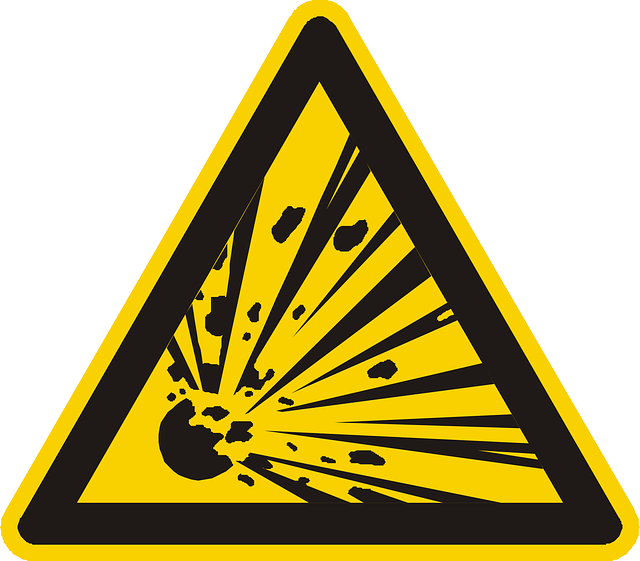Retail companies employ rigorous background checks as a vital part of their hiring process to safeguard customers and maintain store integrity. These checks go beyond basic details, verifying criminal records, references, and educational qualifications to identify potential risks like retail theft. By adhering to strict industry compliance standards, retailers foster trust and accountability, ensuring a secure shopping environment and upholding high ethical standards within their workforce. Effective screening involves evaluating past convictions, aligning with the need for customer safety, business interests, and regulatory requirements in the competitive retail sector.
“In the retail sector, ensuring customer safety and maintaining business integrity is paramount. This article delves into the intricate world of retail employee background checks, specifically focusing on the scrutiny of past convictions. We explore how these checks play a pivotal role in retail theft prevention while emphasizing the importance of retail industry compliance. By examining legal and ethical considerations, we provide insights into creating robust retail staff credentialing processes, balancing security with fairness.”
- Understanding Retail Employee Background Checks
- The Role of Past Convictions in Screening
- Implementing Effective Retail Theft Prevention Strategies
- Legal and Ethical Considerations for Retail Industry Compliance
Understanding Retail Employee Background Checks

Retail companies employ thorough background checks as a critical component of their employee screening process to ensure integrity and promote customer safety in the retail industry. These checks go beyond verifying basic employment history and identification, delving into an applicant’s past to uncover potential red flags. By conducting comprehensive background verifications, retailers aim to mitigate risks associated with hiring individuals who may compromise customer trust or contribute to internal issues like retail theft.
The process typically involves scrutinizing criminal records, checking references, and verifying educational credentials. Retail industry compliance heavily relies on these checks to maintain a secure shopping environment. By understanding the importance of background checks, companies can create robust security measures, ensuring their staff are trustworthy and qualified. This proactive approach not only protects customers but also fosters a culture of integrity within retail operations.
The Role of Past Convictions in Screening

In the realm of retail, ensuring customer safety and maintaining store integrity is paramount. Background checks for potential employees play a pivotal role in achieving this goal. Past convictions, in particular, offer valuable insights into an individual’s history and character. Retail companies employ comprehensive screening processes to verify staff credentials and comply with industry regulations. These checks go beyond basic verification to identify potential risks associated with past criminal activities, focusing on retail theft prevention as a key concern.
Retail employee screening involves meticulous examination of various aspects, including but not limited to, customer safety checks and retail industry compliance standards. By delving into an applicant’s background, employers can make informed decisions regarding hiring. This proactive approach allows retailers to mitigate risks, foster a secure shopping environment, and maintain the highest standards of integrity within their workforce.
Implementing Effective Retail Theft Prevention Strategies

In the competitive retail landscape, ensuring customer safety and protecting business interests go hand in hand. Implementing effective retail theft prevention strategies is paramount for maintaining a secure shopping environment and upholding the integrity of the retail industry. Background checks for retail employees play a pivotal role in this regard. Thorough retail employee screening, including verifying credentials and conducting comprehensive background verifications, helps identify potential risks early on. This process involves meticulous scrutiny of an applicant’s history to ensure they meet the required standards and mitigate the chances of retail theft or misconduct.
Retail industry compliance with these rigorous checks fosters a culture of trust and accountability among staff. Customer safety checks become more robust when every employee is vetted, allowing retailers to address issues proactively. By integrating background checks for retail employees into their hiring processes, businesses can safeguard their merchandise and maintain the integrity of their operations. Such measures not only deter potential thieves but also contribute to a positive shopping experience for customers, ensuring they feel secure while making purchases.
Legal and Ethical Considerations for Retail Industry Compliance

The retail industry faces unique challenges when it comes to employee screening and background verification. Retail stores are often at high risk for theft and other security issues, making comprehensive checks crucial for retail employee integrity. Implementing robust retail background verification processes is essential to ensure customer safety checks and maintain a secure shopping environment. Companies must navigate legal boundaries while adhering to ethical guidelines, especially when it comes to past convictions and their impact on hiring decisions.
Employers must balance the need for retail industry compliance and a diverse workforce with the obligation to protect customers and staff. This involves carefully considering the nature of the offense, its relevance to job duties, and the time elapsed since the conviction. Striking a delicate balance between these factors ensures that qualified individuals are not unfairly barred from employment while also mitigating potential risks to business operations and customer well-being.






